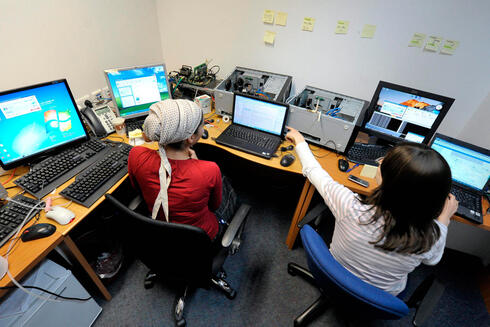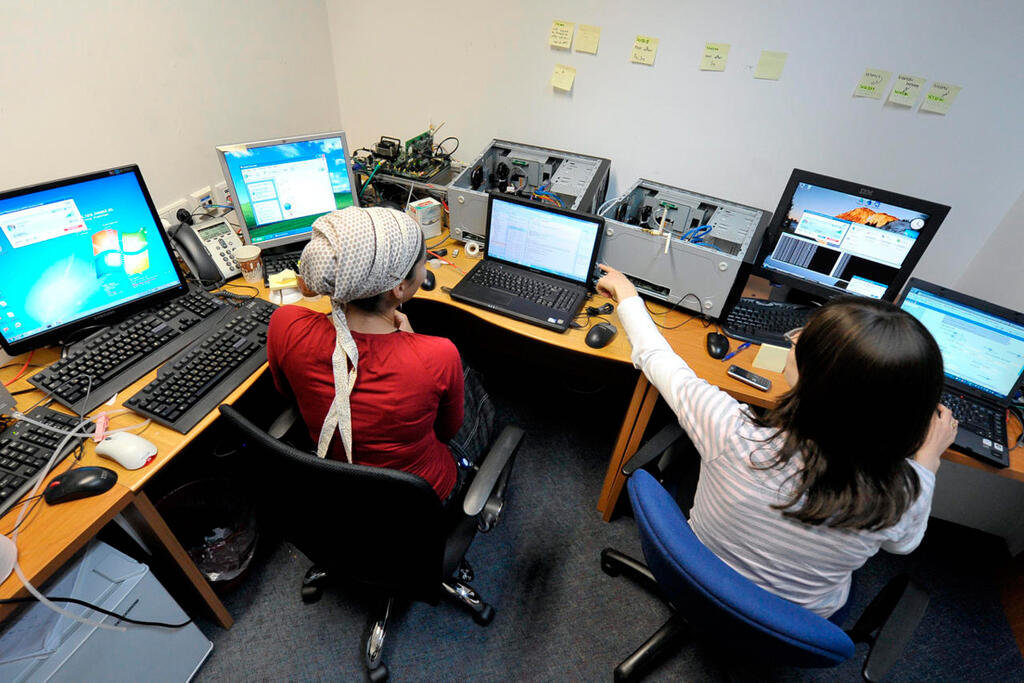
Women constitute only a third of high-tech employees in Israel
A new report by Power in Diversity also showed that Arabs and ultra-Orthodox, which make up over 33% of the total population, only account for a total of 0.6% of high-tech employees
Women make up 34% of the high-tech workforce in Israel, an increase of just 0.4% from 2021, Power in Diversity’s startup Israeli ecosystem diversity report has revealed.
Despite high demand for talent and extensive recruitment efforts in the first half of 2022, there have been only minor improvements in the number of women in management positions as well, with 24% of women holding management positions according to the report, an increase of 0.6% from 2021. The percentage of women in technological positions is 27.8%.
Power in Diversity is publishing the startup Israeli ecosystem diversity report for the second consecutive year. For the first time, it included numbers showing the representation of both ultra-Orthodox and Arab individuals as well as women. This report is the result of an analysis based on data collected from 650 active Israeli venture-backed companies with over 50 employees in the country.
PID was founded by Alan Feld, a partner at Vintage Investment Partners, and Kobi Samburksy and Shamri Dahan are co-chairs of the initiative. Additional VCs that support the initiative include Pitango, Viola, Vintage, Qumra, Glilot, NFX, SVB, Elah Fund, Maor investments, ReD Dot, DTCP, Grove, BRM, New Era, F2, 10D, Hetz Ventures, Hearst, and more.
The study also examined the status of Arabs and the ultra-Orthodox in the startup ecosystem. Despite the fact that Arabs constitute 20% of Israel's population, they represent only 0.2% of the startup industry. In the traditional tech industry, they hold a share of approximately 2-3%. Around 16% of Israeli Arabs hold degrees in STEM fields.
It is estimated that only 0.4% of employees in startups are ultra-Orthodox. The majority of them are women.
This year’s report also included a list of the five leading publicly traded diversified companies in the local ecosystem. Riskified led the way, followed by Payoneer, Outbrain, Fiverr, and monday.com.
Minute Media, Yotpo, and HiBob led the way for startups with over 500 employees; Tailor Brands, Syte, and Zencity, were the top three companies with between 100 and 500 employees; while Phone.do, Darrow, and RiseUp, were top of the pack among companies with between 50-100 employees.
"Especially these days, the discourse on inclusion, equality and acceptance should serve as a milestone in the conduct of all of us, especially companies in the high-tech industry, that is a source of innovation and progress,” said Shahar Silis, the CEO of Power in Diversity. “In the joint process of the initiative with the companies, we have repeatedly proven that a diversified company has a direct impact on profitability, growth and success. The companies that emphasize a healthy organizational culture are more stable companies that can deal with uncertainty more effectively. In the current climate, this is a significant advantage. Those who formulate a growth strategy based on DEI tools and exposure to different populations will reap the rewards when the market recovers, and reach the next peak stronger."
Kobi Samboursky, co-chairman of PID and Founding Partner at Glilot Capital Partners, added: "2023 will not be an easy year for startups. After years of market growth, we are witnessing cross-industry layoffs and conditions of uncertainty. It is particularly in times like these that we ought to address misrepresented populations, as they are likely to suffer more harm.”
Sivan Shamri Dahan, co-chairman of PID and Managing Partner at Qumra capital, echoed a similar sentiment: "In this highly challenging political climate, where the country’s social and financial achievements are at risk, the high-tech sector, which is the propellor of the economy must strive full force, to embrace women in the industry. Changes occur over time and we are implementing a step by step plan with the goal to achieve total gender equality in employment and women entrepreneurs. Furthermore, we should make ultra-Orthodox and Arab women, which still make up a small portion of our industry, our next focus."














